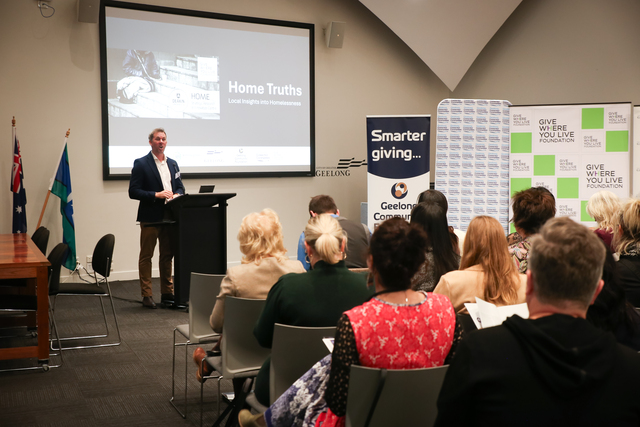Geelong mayor Stretch Kontelj has announced the re-establishment of a working group dedicated to tackling homelessness in our region.
Timed to coincide with Homelessness Week 2025, the announcement on the Greater Geelong Homelessness Working Group acknowledged the magnitude of the issue.
“Data shows that throughout 2023-24, 4604 people received support for homelessness in Greater Geelong,” Mayor Kontelj said.
“Of those, 44 per cent were survivors of family and domestic violence, 12 per cent were First Nations people and 9 per cent were young people.
“On any given night, the estimated population of people experiencing homelessness in Greater Geelong is 1546.”
The new working group, which first met in April this year, is City-led but includes a range of organisations and agencies either working with or making positive changes for people experiencing homelessness.
Those stakeholders include Meli, The Salvation Army, Towards Home+ Geelong, The Orange Door and Wathaurong Aboriginal Co-operative.
“Having met several times already, the monthly group is gaining a clearer picture of homelessness in the Geelong region by sharing local data, identifying emerging issues and collaborating on projects, policy and funding initiatives,” Mayor Kontelj said.
“By working together, members are aiming to help improve services to support people experiencing homelessness and identify opportunities for action, collaboration and information sharing.”
The working group will draw on a new research report into homelessness in the Greater Geelong region by Deakin University’s HOME Research Centre and the Give Where You Live Foundation, also released this week.
The Home Truths report revolves around the central question of how local service providers can best meet the needs of people facing homelessness in the region.
Give Where You Live chief executive Zac Lewis said the report shone a light on both the issues faced by those dealing with homelessness and the action needed for long-term change in the community.
“It also confirms what many of us working in this space have sensed for some time; that services are working tirelessly, they’re under immense pressure and the systems in place are no longer suited for the current conditions,” Mr Lewis said.
“We hope this report, which centres the voices of local practitioners and the people they support, can help inform and influence policy, service design, and funding decisions to improve how we respond to homelessness in Geelong.”









